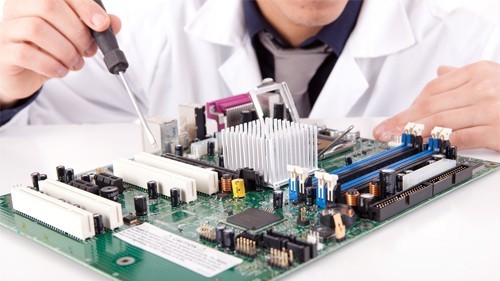Perhaps nothing is more associated with modern technological culture than electronic devices. Nevertheless how do these often mysterious "black boxes" really work? This course provides an overview of the basics of electric/electronic circuit analysis, starting with an understanding of electrical theory and moving to simple circuit components like power supplies, resistors, capacitors, and inductors.
Typically the course also provides an launch to the actual signal design, construction, test, and measurement, giving the hobbyist a jumping-off point for even more pursuit of the issue. In addition, the course highlights some key principles of semiconductors and semiconductor devices (like transistors). Lastly, the lessons conclude with a look at some applications of the principles talked about throughout the course. The lessons are designed to serve students with a variety of backgrounds, and they require only a minimum degree of mathematical aptitude (some algebra is helpful but not necessary to understand the main ideas of the course).

Each lesson supplies a sufficient background to help novices understand the concepts that underlie the functioning of electric and electronic circuits. The course can serve as a review of the essential concepts of signal theory or as a starting point for a more in-depth study of particular areas of interest, such as semiconductor devices, complex electronic networks, routine design, and hobbyist electronic devices.
Comentários
Postar um comentário